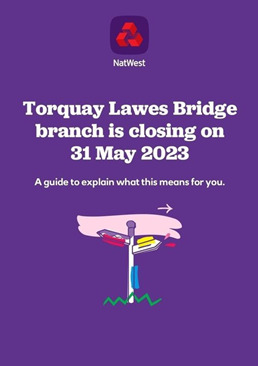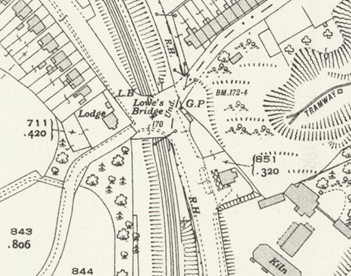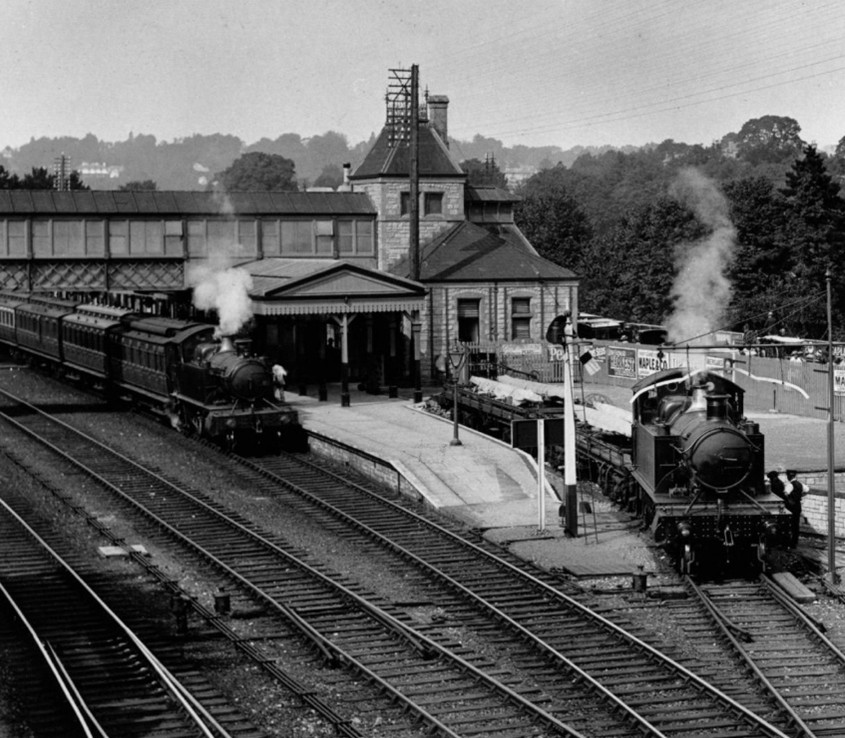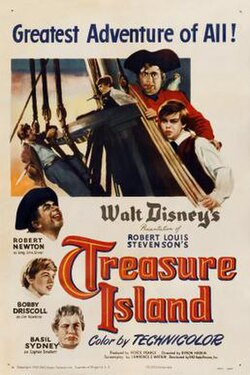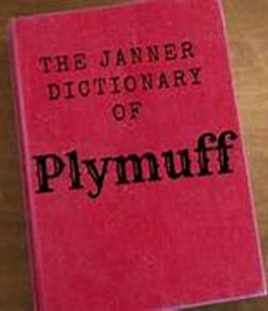Early one July Monday morning in 1951 taxi driver Jack Driscoll was returning from Newton Abbot in “drenching rain” when “he saw a ghost.”
Jack “was nearing ‘Lawe’s Bridge’" when he saw a man step off the pavement by the Torbay Hospital driveway. Thinking it must be a ‘fare’ he slowed down. The man carried on walking, without glancing left or right, and Jack had to brake hard to avoid an accident.”
Jack was so infuriated by this that he pulled over and got out of his car “to give the jaywalker a piece of his mind.” However, there was no one there and with “no possible place for anyone to hide.”
Jack told the newspaper, “It sent a chill down my spine, I can tell you…I just jumped back into my seat, put my foot down – and got away as quickly as I could.”
Not surprisingly, Jack then became a bit of a figure of fun at Abbey Road’s Luxicab Garage. Nevertheless, he stood by his story, “I couldn’t have been mistaken…The fellow – dressed in a light raincoat – was there all right, and my headlights were full on him – besides, there is plenty of light just there.”
Jack’s experience is just one more chapter in the never-ending compendium of Torquay supernatural sightings. Yet, worth noting is that the article refers to Lawe’s Bridge and not Lowe’s Bridge.
The correct spelling is Lowe, though over the years the Hospital, the Post Office, nearby car dealers, the petrol station, and even the bus service, referred to Lawe’s Bridge.
The apocryphal story is that, when the route of the new railway was being decided in the 1840s the London surveyors asked a passerby whose land they were going to cross. The strongly accented Devonshire local accurately said ‘Mr Lowe’, but the surveyors misheard.
None of this would have been anything more than of minor local interest; few of us would ever have the need to cross this little rural bridge anyway. Then it was decided that Torquay needed a new hospital. Since it opened in 1928, we have all needed to find our way to Lowe’s Bridge.
That both spellings are in use wouldn’t have been surprising in the past. The idea of a ‘standard’ place name is a relatively modern one.
Paignton, for example, is recorded in Domesday in 1086 as Peintone. The town has also appeared in maps and descriptions as Peynton, Payngton, Paynton and, the almost there, Paington. It probably derives from Pæga, an Anglo-Saxon personal name and ton, a settlement.
Torquay is a later name. A mixture of the old Celtic term for a rocky hill, tor, and the Middle English, French-origin, word ‘key’. Again, the spellings didn’t settle down till later as we have Torrequay, Torkay, Torkey and Tor Quay.
Eventually we all needed to agree to a particular spelling for a place. The main reasons for standardisation came during the nineteenth century with the arrival of the railways, the recording of names on Ordnance Survey maps, use by the Post Office, and the placing of road signs by local authorities.
As we see in the Lawe’s/Lowe’s debate, some of the disparity can be caused by the way that people pronounce a name. There are supposedly 43 distinct dialects across Britain. By comparison, only six distinct dialects can be heard in the United States.
Owing to the West Country's agricultural history and isolation, our traditional accent has long been associated with farming, and consequently with rustic simplicity and lack of education.
Our accent is probably now most recognised in film as pirate talk, a consequence of our seafaring tradition. Gilbert and Sullivan's 1879 operetta The Pirates of Penzance may have further contributed to the association. More recently Robert Newton, born in Dorset and raised in Cornwall, starred as Long John Silver in the 1950 Disney film Treasure Island and is credited with popularising the stereotypical West Country ‘pirate voice’.
One tourism website even informs American tourists to Devon that they should expect to encounter people speaking like Hagrid from Harry Potter.
There are still remnants of past regional variations. For instance, we now know Janner as a nickname associated with folks from Plymouth. However, before it was narrowed down to refer to our friends on the Tamar, the term once encompassed all Devonians. The root seems to be that Jan is the Devon way of saying John and, admittedly, Plymouth has retained its distinctive accent.
Yet, since its real beginnings the early nineteenth century, Torquay has never been a typical Devon community. It may be said that there isn’t even a modern-day Torquay accent. In the town centre we now have an amalgam of pretty much every regional accent in the country along with a variety of tongues from beyond our shores.
Torquay was always a resort above and apart, more a concept than a real place, with a self-image that became readily recognised and critiqued by tourists. Charles Dickens was one of those who disliked Torquay's genteel and leisured affectation of superiority to which he referred as "humbug". The town was, he wrote, a "place I consider to be an imposter, a delusion and a snare".
This eccentricity and hubris was the outcome of the town's evolution. From humble beginnings Torquay became a new type of community as a seaside resort, a cluster of hamlets reworked into the richest town in England.
The nation was scoured for the best ways to meet the need for tourist beds and to satisfy the appetite for recreation; for theatregoing, bathing, sunbathing, yachting, and promenading. Following the Torquay tradition of mimicking other places, the town's fabric took on exotic styles to replicate the allure of the Mediterranean.
As a place to visit and to live, we attracted so many new residents and long-term visitors that we quickly became a mix of many accents.
And in this place of leisure, alongside other displays of affluence and sophistication, ways of speaking were useful ways of declaring your social class. Hence, a command of Received Pronunciation would give out all sorts of information.
This subsequently relegated regional accents. To be a part of Torquay Society, a certain standard Home Counties English was expected. This norm would permeate the town, the exception being in certain trades, such as fishermen, who proudly preserved the vernacular.
Back in 1907 Charles G. Harper noted the decline of the Devonshire accent in Torquay.
"These exploited seaside towns are not the places in which to look for fine survivals of old Devon talk. The villages and the hamlets are the last homes of it, and the only times when an indweller hears the native dialect is when a servant, fresh-caught from 'Dartymoor' or other remote district, comes into residence.”
But, as today, there are some survivals:
“Then, indeed, one hears strange phrases. Then you learn that in Devon all girls are 'maads' and all boys 'byes,' large or small; or in the Devon tongue, 'gert' or 'liddle'. In Devon most things that are thorough, or difficult, or to be expressed in terms of bigness or admiration are 'proper', and this expression, among some others, is not, like much else of the rustic talk, obsolescent.”
In the twenty-first century, increased mobility, urbanisation, teaching in schools, talking to machines and listening to Americans in the media, has caused diffuse dialects and local accents to decline. It is now predicted that withing a few decades regional accents could disappear to be overtaken by a southeastern monoculture.
Place names still evolve, however. Now some younger residents call Lowe’s Bridge the ‘Macdonald’s Lights’. And for how long will we still know the end of Union Street and the beginning of Fleet Street as ‘the GPO Roundabout’?

